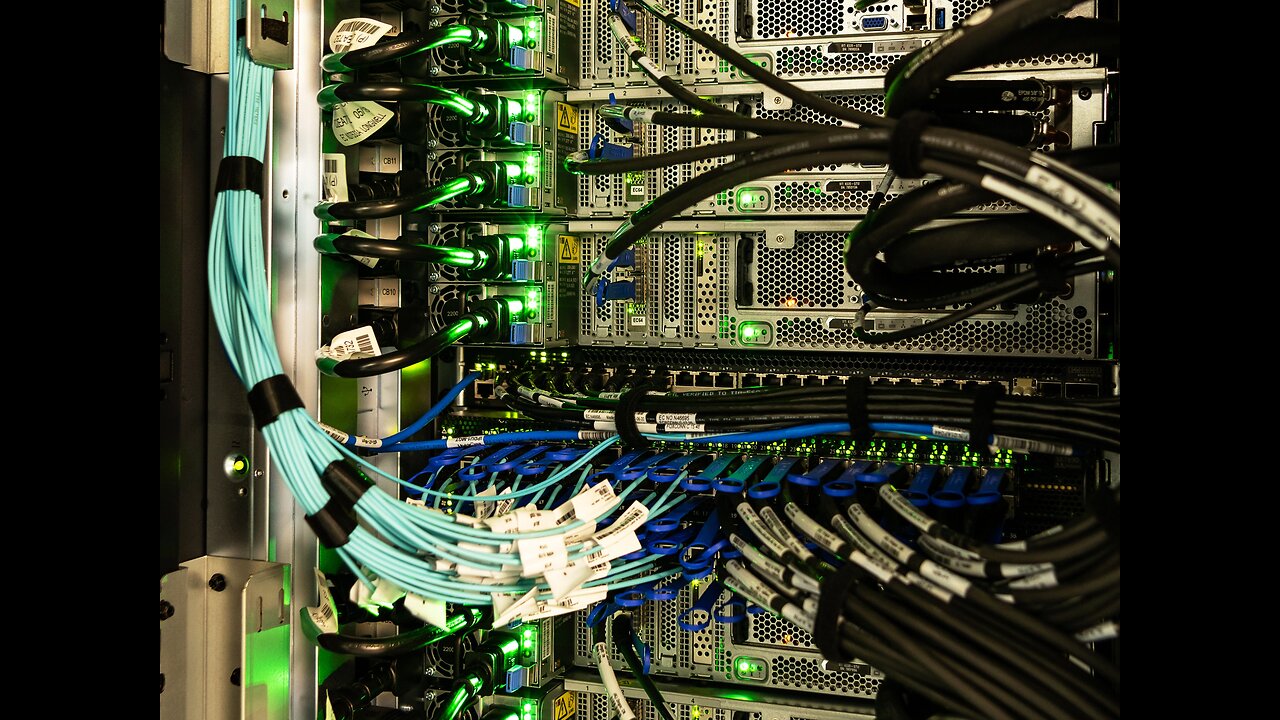Premium Only Content

An A.I. Supercomputer Whirs to Life, Powered by Giant Computer Chips - The New York Times
🥇 Bonuses, Promotions, and the Best Online Casino Reviews you can trust: https://bit.ly/BigFunCasinoGame
An A.I. Supercomputer Whirs to Life, Powered by Giant Computer Chips - The New York Times
The new supercomputer, made by the Silicon Valley start-up Cerebras, was unveiled as the A.I. boom drives demand for chips and computing power. Andrew Feldman, chief executive of the Silicon Valley start-up Cerebras, with a new A.I. supercomputer at a data center in Santa Clara, Calif. Credit... Cayce Clifford for The New York Times By Yiwen Lu Reporting from Santa Clara, Calif. July 20, 2023 Updated 12:42 p.m. ET Inside a cavernous room this week in a one-story building in Santa Clara, Calif., six-and-a-half-foot-tall machines whirred behind white cabinets. The machines made up a new supercomputer that had become operational just last month. The supercomputer, which was unveiled on Thursday by Cerebras, a Silicon Valley start-up, was built with the company’s specialized chips, which are designed to power artificial intelligence products. The chips stand out for their size — like that of a dinner plate, or 56 times as large as a chip commonly used for A.I. Each Cerebras chip packs the computing power of hundreds of traditional chips. Cerebras said it had built the supercomputer for G42, an A.I. company. G42 said it planned to use the supercomputer to create and power A.I. products for the Middle East. “What we’re showing here is that there is an opportunity to build a very large, dedicated A.I. supercomputer,” said Andrew Feldman, the chief executive of Cerebras. He added that his start-up wanted “to show the world that this work can be done faster, it can be done with less energy, it can be done for lower cost.” Demand for computing power and A.I. chips has skyrocketed this year, fueled by a worldwide A.I. boom. Tech giants such as Microsoft, Meta and Google, as well as myriad start-ups, have rushed to roll out A.I. products in recent months after the A.I.-powered ChatGPT chatbot went viral for the eerily humanlike prose it could generate. But making A.I. products typically requires significant amounts of computing power and specialized chips, leading to a ferocious hunt for more of those technologies. In May, Nvidia, the leading maker of chips used to power A.I. systems, said appetite for its products — known as graphics processing units, or GPUs — was so strong that its quarterly sales would be more than 50 percent above Wall Street estimates. The forecast sent Nvidia’s market value soaring above $1 trillion. “For the first time, we’re seeing a huge jump in the computer requirements” because of A.I. technologies, said Ronen Dar, a founder of Run:AI, a start-up in Tel Aviv that helps companies develop A.I. models. That has “created a huge demand” for specialized chips, he added, and companies have “rushed to secure access” to them. Image A Cerebras chip is 56 times the size of a chip commonly used for artificial intelligence. Credit... Cayce Clifford for The New York Times To get their hands on enough A.I. chips, some of the biggest tech companies — including Google, Amazon, Advanced Micro Devices and Intel — have developed their own alternatives. Start-ups such as Cerebras, Graphcore, Groq and SambaNova have also joined the race, aiming to break into the market that Nvidia has dominated. Chips are set to play such a key role in A.I. that they could change the balance of power among tech companies and even nations. The Biden administration, for one, has recently weighed restrictions on the sale of A.I. chips to China, with some American officials saying China’s A.I. abilities could pose a national security threat to the United States by enhancing Beijing’s military and security apparatus. A.I. supercomputers have been built before, including by Nvidia. But it’s rare for start-ups to create them. Cerebras, which is based in Sunnyvale, Calif., was founded in 2016 by Mr. Feldman and four other engineers, with the goal of building hardware that speeds up A.I. development. Over the years, the company has raised $740 million, including from Sam Altman, who leads the A.I. lab OpenAI, and venture capital firms such as Benchmark. Cerebras is valued at $4.1 billion. Because the chips that are typically used to power A.I. are small — often the size of a postage stamp — it takes hundreds or even thousands of them to process a complicated A.I. model. In 2019, Cerebras took the wraps off what it claimed was the largest computer chi...
-
 18:43
18:43
Nikko Ortiz
1 day agoWorst Karen Internet Clips...
126K13 -
 8:39
8:39
MetatronHistory
1 day agoWhy Did We Switch From Bronze to Iron in Classical Antiquity?
11.2K1 -
 11:01
11:01
MattMorseTV
15 hours ago $16.81 earnedEU caught in $140,000,000 SCANDAL.
25.9K60 -
 1:44:46
1:44:46
PandaSub2000
12 hours agoUltimate Chicken Horse | ULTRA BEST AT GAMES (HD Edited Replay)
11.5K -
 1:47:16
1:47:16
omarelattar
2 days agoTroy Eckard Shares His Rags to Riches Story
15.9K -
 26:18
26:18
GritsGG
15 hours agoHow to Activate Heat Map & Find Self Revives On Warzone!
11.8K -
 29:01
29:01
The Pascal Show
1 day ago $10.60 earnedRUNNING SCARED! Candace Owens DESTROYS TPUSA! Are They Backing Out?!
50.3K54 -
 24:45
24:45
Blabbering Collector
1 day agoUnboxing The 2025 Diagon Alley Advent Calendar By Carat Shop | Harry Potter
14.9K1 -
 0:43
0:43
Gaming on Rumble
1 day ago $7.08 earnedLvl UP (Raids)
50.6K4 -
 19:07
19:07
MetatronGaming
1 day agoWe need to find a way out NOW!
12.2K